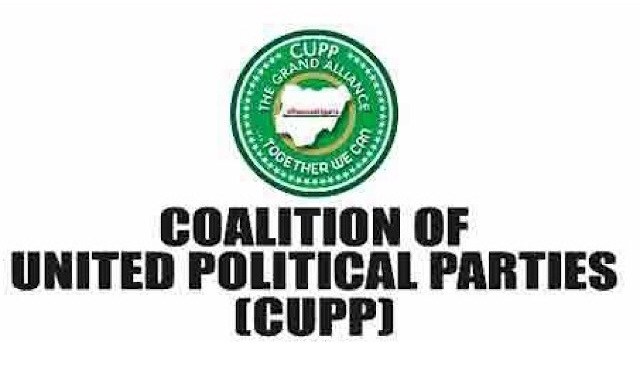The Coalition of United Political Parties (CUPP) has welcomed the consensus on the Tax Reform Bills across states and geopolitical zones, describing it as a positive development compared to the earlier acrimony the proposed reform generated, particularly among state governors.
However, the coalition expressed concern over the percentages allocated to various elements of the reform, describing them as lopsided.
CUPP spokesperson, Comrade Mark Adebayo, made the remarks in response to the backing now given by the Nigerian Governors’ Forum (NGF) for the new tax reform and all legislative processes leading to the passage of the bills before the National Assembly.
ALSO READ: Arewa group condemns Northern govs for backing tax reform bills
Recall that the governors agreed on a sharing formula reflecting 50% based on equality, 30% based on derivation, and 20% based on population.
While acknowledging the positives of the new tax regime, particularly that it does not propose increasing VAT rates and exempts essential and agricultural goods from VAT, Adebayo faulted the percentages allocated to the various elements of the reform.
He suggested that a more equitable formula would have been 50% based on derivation, 30% on population, and 20% on equality. “That’s more equitable than the proposed standards of assessment,” he said.
“The fact that the new tax regime proposes not to increase VAT rates and exempts essential and agricultural goods from VAT makes it look good, considering the current atrocious economic crises caused by the current administration,” Adebayo added.
“However, the percentages allocated to the various elements of the tax reform are lopsided. Thirty percent based on derivation is unfair. It should have, at least, been made 50%. What we believe should have obtained is 50% based on derivation, 30% on population, and 20% on equality.”
Adebayo emphasised that the consensus on the tax reform across states and geopolitical zones, as opposed to the earlier acrimony, was a welcome development.
He further argued that the most important task for governments at various levels was to ensure that the taxes collected were used for the security and development of the country, not looted by corrupt public officials. He pointed out that corruption had been the main obstacle to Nigeria’s progress, despite its abundance of natural and human resources.
“Until systemic corruption is eliminated, no amount of reforms can benefit Nigeria and Nigerians,” he concluded.
NIGERIAN TRIBUNE
